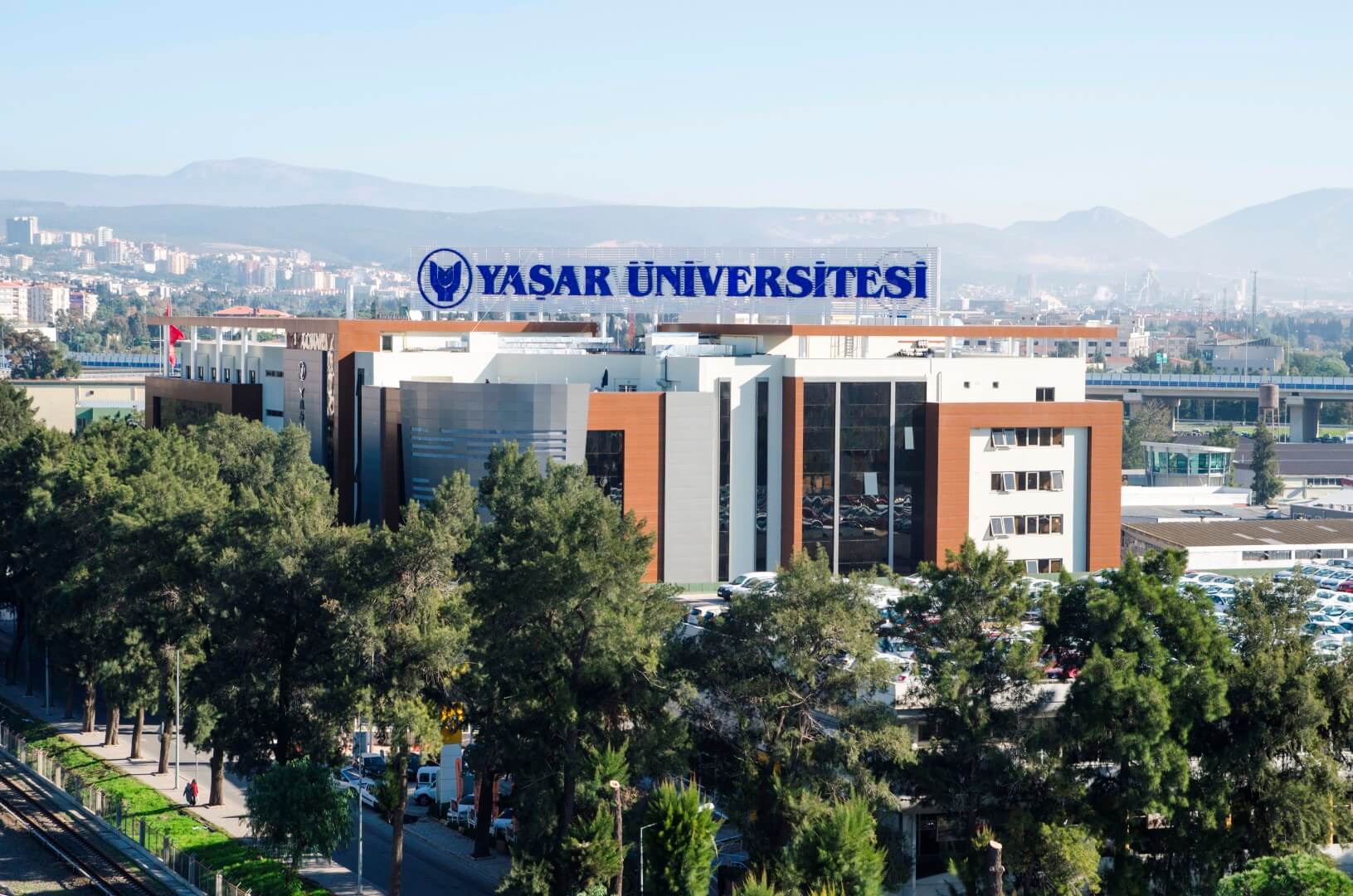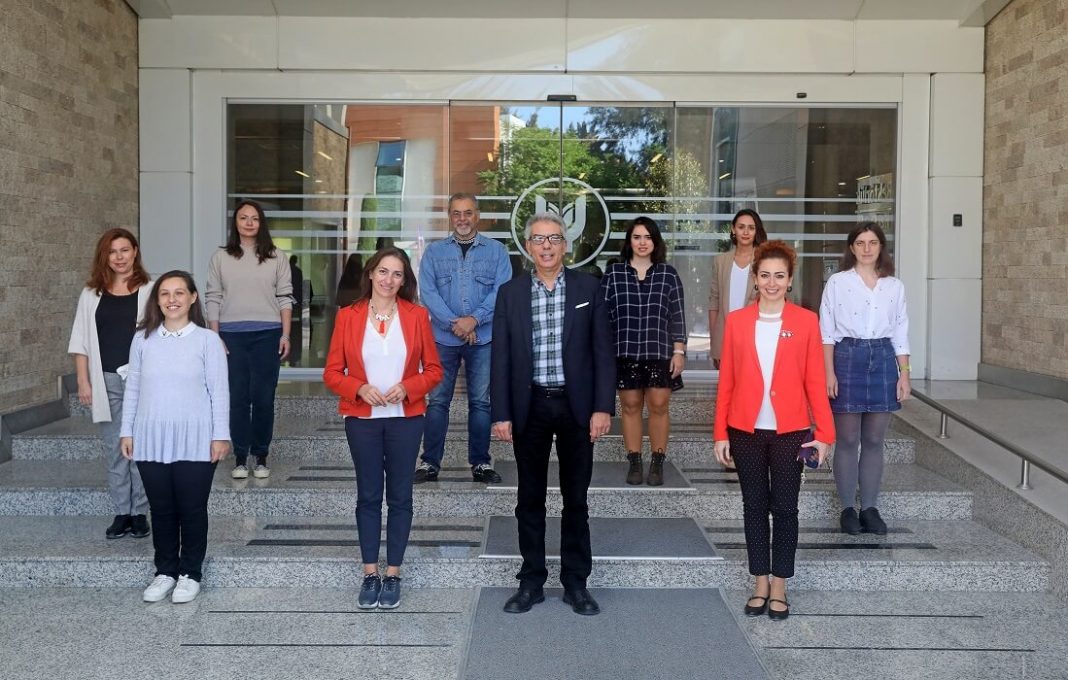Yaşar University, in partnership with 7 institutions from 6 different European countries, qualified for funding from the European Institute of Innovation and Technology of the European Union under the first call of the EU for increasing the innovation capacity in higher education. The project is intended to execute and commercialize startups, while also making the university the most efficient innovation and entrepreneurship center of the Aegean Region working in partnership with all of the institutions and pioneering the digital technologies applied in the agriculture and food sector through the laboratory to be established.
Under the first call of the European Institute of Innovation and Technology for “Building Innovation Capacity for Higher Education” where a total number of 23 projects were awarded funding, the project “RİEcoLab – Responsible Innovation-Led Entrepreneurial University Transformation Centres (Ecosystem Integration Labs) where Yaşar University is involved among the project partners was also awarded funding. The other partners of the RiEcoLab Project include the University of Lodz from Poland, Helixconnect Europe and the National University of Political Studies and Public Administration (SNSPA) from Romania, the Wageningen Economic Research Center from the Netherlands, the University College Dublin from Ireland, the Accreditation Council for Entrepreneurial and Engaged Universities (ACEEU) from Germany, and the European Network of Angel Investors from Belgium. The RiEcoLab Project will continue until December 2021 and will receive a grant of 400 thousand Euros in the first phase. If the first phase proves to be successful, the budget will be increased to 1 million 200 thousand Euros, and the project will proceed to the second phase and continue for 18 months more.
NEW INITIATIVES TO SPROUT AND COME TRUE WITH THIS PROJECT
The project is intended to ensure immediate commercialization of startups since most entrepreneurs quickly quit due to despair and most startups do not prove to be permanent and sustainable. To achieve this objective, the project also aims to develop a new way of creating research and development in universities so that many beneficiaries such as scholars, administrative staff and students can be engaged in this process. Within the scope of the project, Ecosystem Integration Laboratories will be established in 4 different thematic areas within 4 different universities, including Yaşar University. These laboratories will be specially tailored for the needs and areas of expertise of each university that are identified based on certain criteria, and will focus on commercializing startups. In this respect, Yaşar University plans to lead the field of digital technologies applied in the ‘agriculture and food’ sector with the laboratory to be established and the Innovation Vision Action Plan to be conducted. These works are therefore intended to facilitate sustainable circular economic development that meets regional, environmental, cultural and social needs in harmony with all the actors involved in the process, including the industry, the academia, the government and the civil society, while also becoming the most efficient innovation and entrepreneurship center in the Aegean Region by encouraging inclusive initiatives and creating and maintaining innovative networks.
BENEFITS FOR THE ENTIRE AEGEAN REGION
Yaşar University Vice Rector for Research and Innovation and Coordinator of the Project, Prof. Levent Kandiller stated, “This project will strengthen the innovative and entrepreneurial ecosystem in İzmir by directly benefitting not only our university but also all the other universities and technology transfer offices in the region. Another tangible output of the project will be the ‘Ecosystem Integration Laboratory’ to be realized as part of the initiative to found the Agricultural Technologies Center of İzmir. Yaşar University’s recently-founded Faculty of Agricultural Sciences and Technologies will also be engaged in and contributing to this initiative that is coordinated by the İzmir Commodity Exchange.”

HIGHER EDUCATION INITIATIVE BY THE EUROPEAN INSTITUTE OF INNOVATION AND TECHNOLOGY
The Higher Education Initiative is one of the key objectives in the European Institute of Innovation and Technology (EIT)’s EIT Strategic Innovation Agenda for 2021-2027. This initiative aims to support higher education institutions by providing expertise and coaching, as well as funding and access to the EIT innovation ecosystem, thereby allowing them to develop innovation action plans tailored to their needs. During its pilot phase, the initiative funded 23 projects.

EUROPEAN INSTITUTE OF INNOVATION AND TECHNOLOGY (EIT)
To strengthen the innovation capacity in Europe, the European Institute of Innovation and Technology (EIT) promotes solutions to global challenges and nurtures individuals with entrepreneurial talent to create sustainable growth and qualified jobs in Europe. EIT, a body of the European Union, is an integral part of Horizon Europe, the EU’s Framework Programme for Research and Innovation. The Institute supports dynamic Pan-European partnerships formed by leading companies, research laboratories and universities, as well as the Knowledge and Innovation Communities of the EIT.

